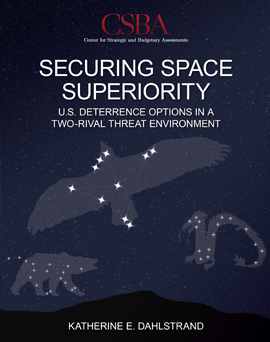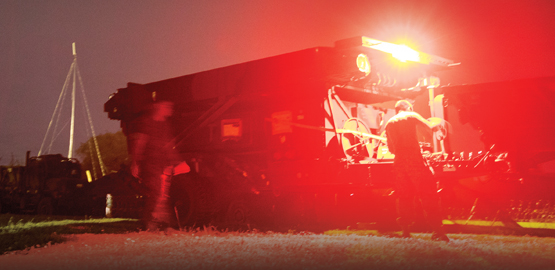
Military competition in and for space is rising. Both the People’s Republic of China (PRC) and the Russian Federation have put significant effort into developing, demonstrating, and fielding counterspace capabilities that could allow the Chinese and Russian militaries to threaten U.S. space systems. Is the United States prepared to compete with and deter two space rivals simultaneously?
In Securing Space Superiority, CSBA Senior Fellow Katherine E. Dahlstrand argues that the United States cannot treat the space threats from China and Russia in isolation and must instead be prepared to deter or counter both simultaneously. She examines Chinese and Russian space doctrine and investments, establishing that these U.S. adversaries have significant space and counterspace capabilities. Dr. Dahlstrand then analyzes the ways in which the two countries’ efforts in space could interact to pose concurrent challenges to the United States.
To compete and deter in this two-rival space environment, Dr. Dahlstrand contends that the U.S. Space Force (USSF) should adopt a more proactive approach and match efforts at deterrence by denial and resilience with investments in counterspace capabilities. Developing, exercising, and selectively revealing these capabilities would enable deterrence-by-punishment options in space and support cost imposition during both peacetime and conflict. Ultimately, a U.S. approach to space that balances resilience with proactive counterspace capabilities would provide the United States with a more flexible, sustainable, and effective framework to achieve its stated goal: space superiority.



























